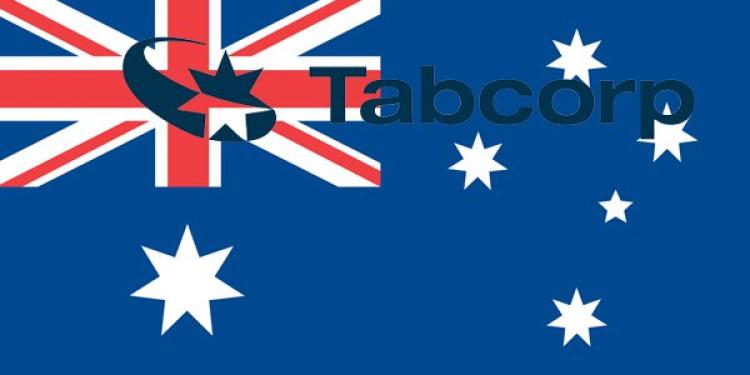Tabcorp Faces Strong Competition for Australian Gambling Market
Posted: November 2, 2014
Updated: June 4, 2017

Punters like to place bets with offshore providers which poses a problem for Tabcorp and also Australian consumers in the long run, considering all the ramifications.
Australia is a popular gaming market where millions are spent every year, so it is no surprise that the continent’s residents gamble more per capita than any other nation. Many players like to place wagers with offshore bookies, which results in money flowing out of the country and into foreign companies. This has also alerted mobile betting giant Tabcorp which has strongly opposed this system and has sought help from the government to put a stop to it.
Tabcorp wants the lawmakers to ban offshore betting providers from taking bets from Australian gamblers, as they believe that this would not only pose a threat to the future of the company but also would endanger the nature of gambling on the continent. This has a sparked a heated debate in the industry as the government evaluates the next steps it intends to make.
Dwyer also pointed to the fact that the government is losing out on a great of money. Instead of getting millions of revenue through taxes, the money is funneled out of Australia and into other territories. “Revenue that would otherwise be returned to the Australian racing industry, and our governments... is instead going to offshore operators.”
The gaming giant highlighted how many European countries are tackling the problem and cracking down on this particular issue, according to gambling news. Tabcorp earmarked France as an example for prohibiting non-licensed betting providers from taking wagers from French residents, something that the Australian gaming firm would like to see from its own government in the near future.
The chief executive of the Australian Wagering Council, Chris Downy, stated that banning the offshore companies from taking bets from local residents is a good initial step. However, before that can take place a number of reforms and considerations must be addressed to the Interactive Gambling Act that dictates the gaming laws on the continent.
The government run by Tony Abbot has been slow to address the issue, although Dwyer has indicated that Tabcorp maintains an open dialogue with the lawmakers about the matter. The offshore betting firms don’t pay any taxes or fees to the government and don’t really show regard for responsible gambling, something that has also emerged as a recent problem with online gaming in the Philippines as well.
Nevertheless, punters prefer to take these risks and play with unlicensed operators as they believe that they will get rewarded far more than with local gaming providers. However that is not the case and this might actually result in long term ramifications if the lawmakers don’t come up with a solution pretty soon.
Australia is a popular gaming market where millions are spent every year, so it is no surprise that the continent’s residents gamble more per capita than any other nation. Many players like to place wagers with offshore bookies, which results in money flowing out of the country and into foreign companies. This has also alerted mobile betting giant Tabcorp which has strongly opposed this system and has sought help from the government to put a stop to it.
Tabcorp wants the lawmakers to ban offshore betting providers from taking bets from Australian gamblers, as they believe that this would not only pose a threat to the future of the company but also would endanger the nature of gambling on the continent. This has a sparked a heated debate in the industry as the government evaluates the next steps it intends to make.
Tabcorp believes offshore operators pose a threat to the consumers and sports
It is currently estimated that 14 percent of Australians place bets with non-licensed offshore providers, a figure that is alarmingly high for many parties that hold significant investment in the business. Tabcorp is one of those firms concerned about the future prospects of the industry and wants the government to implement some changes.• Tabcorp is Australia’s leading gaming providerTabcorp’s chairman, Paula Dwyer, commented that the company is not only taking action out of self-interest but is rather worried that the offshore operators may pose a serious threat to the integrity of sports and consumer protection. “Because offshore operators are not regulated to Australian standards, there are significant risks to the consumer in terms of inadequate protection, as well as to the integrity of sport and racing.”
• 14 percent of Australians wager with offshore operators
• Offshore providers don’t pay taxes or fees and don’t practice responsible gambling
Dwyer also pointed to the fact that the government is losing out on a great of money. Instead of getting millions of revenue through taxes, the money is funneled out of Australia and into other territories. “Revenue that would otherwise be returned to the Australian racing industry, and our governments... is instead going to offshore operators.”
The gaming giant highlighted how many European countries are tackling the problem and cracking down on this particular issue, according to gambling news. Tabcorp earmarked France as an example for prohibiting non-licensed betting providers from taking wagers from French residents, something that the Australian gaming firm would like to see from its own government in the near future.
$1 billion has gone to offshore bookies since 2010
The Australian government hasn’t done much to solve the issue and seems rather undecided on the matter when looking at the policies related to the gambling industry. The massive growth in online gambling can be linked to rise in the attention it is receiving from the industry. Productivity Commission reports that starting from 2010, the money that has been directed towards the black market offshore providers stands a massive $1 billion.The chief executive of the Australian Wagering Council, Chris Downy, stated that banning the offshore companies from taking bets from local residents is a good initial step. However, before that can take place a number of reforms and considerations must be addressed to the Interactive Gambling Act that dictates the gaming laws on the continent.
The government run by Tony Abbot has been slow to address the issue, although Dwyer has indicated that Tabcorp maintains an open dialogue with the lawmakers about the matter. The offshore betting firms don’t pay any taxes or fees to the government and don’t really show regard for responsible gambling, something that has also emerged as a recent problem with online gaming in the Philippines as well.
Nevertheless, punters prefer to take these risks and play with unlicensed operators as they believe that they will get rewarded far more than with local gaming providers. However that is not the case and this might actually result in long term ramifications if the lawmakers don’t come up with a solution pretty soon.
Related content
Subscribe
0 Comments












